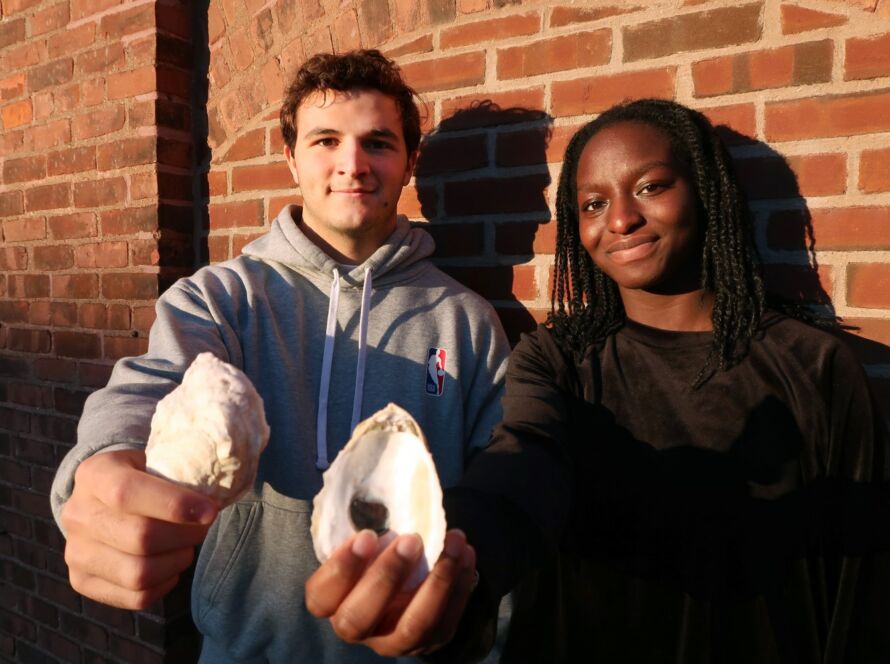How can MIT’s neighborhood leverage generative AI to assist studying and work on campus and past?
At MIT’s Pageant of Studying 2024, school and instructors, college students, workers, and alumni exchanged views in regards to the digital instruments and improvements they’re experimenting with within the classroom. Panelists agreed that generative AI must be used to scaffold — not change — studying experiences.
This annual occasion, co-sponsored by MIT Open Studying and the Workplace of the Vice Chancellor, celebrates educating and studying improvements. When introducing new educating and studying applied sciences, panelists careworn the significance of iteration and educating college students the right way to develop essential considering abilities whereas leveraging applied sciences like generative AI.
“The Pageant of Studying brings the MIT neighborhood collectively to discover and have fun what we do each day within the classroom,” mentioned Christopher Capozzola, senior affiliate dean for open studying. “This 12 months’s deep dive into generative AI was reflective and sensible — one more outstanding occasion of ‘thoughts and hand’ right here on the Institute.”
Incorporating generative AI into studying experiences
MIT school and instructors aren’t simply keen to experiment with generative AI — some consider it’s a obligatory software to organize college students to be aggressive within the workforce. “In a future state, we’ll know the right way to educate abilities with generative AI, however we should be making iterative steps to get there as a substitute of ready round,” mentioned Melissa Webster, lecturer in managerial communication at MIT Sloan College of Administration.
Some educators are revisiting their programs’ studying objectives and redesigning assignments so college students can obtain the specified outcomes in a world with AI. Webster, for instance, beforehand paired written and oral assignments so college students would develop methods of considering. However, she noticed a possibility for educating experimentation with generative AI. If college students are utilizing instruments resembling ChatGPT to assist produce writing, Webster requested, “how will we nonetheless get the considering half in there?”
One of many new assignments Webster developed requested college students to generate cowl letters via ChatGPT and critique the outcomes from the attitude of future hiring managers. Past studying the right way to refine generative AI prompts to provide higher outputs, Webster shared that “college students are considering extra about their considering.” Reviewing their ChatGPT-generated cowl letter helped college students decide what to say and the right way to say it, supporting their improvement of higher-level strategic abilities like persuasion and understanding audiences.
Takako Aikawa, senior lecturer on the MIT World Research and Languages Part, redesigned a vocabulary train to make sure college students developed a deeper understanding of the Japanese language, moderately than simply proper or flawed solutions. College students in contrast quick sentences written by themselves and by ChatGPT and developed broader vocabulary and grammar patterns past the textbook. “One of these exercise enhances not solely their linguistic abilities however stimulates their metacognitive or analytical considering,” mentioned Aikawa. “They should assume in Japanese for these workouts.”
Whereas these panelists and different Institute school and instructors are redesigning their assignments, many MIT undergraduate and graduate college students throughout totally different educational departments are leveraging generative AI for effectivity: creating shows, summarizing notes, and shortly retrieving particular concepts from lengthy paperwork. However this expertise can even creatively personalize studying experiences. Its potential to speak info in numerous methods permits college students with totally different backgrounds and talents to adapt course materials in a method that’s particular to their specific context.
Generative AI, for instance, may help with student-centered studying on the Ok-12 stage. Joe Diaz, program supervisor and STEAM educator for MIT pK-12 at Open Studying, inspired educators to foster studying experiences the place the coed can take possession. “Take one thing that youngsters care about and so they’re enthusiastic about, and so they can discern the place [generative AI] won’t be right or reliable,” mentioned Diaz.
Panelists inspired educators to consider generative AI in ways in which transfer past a course coverage assertion. When incorporating generative AI into assignments, the hot button is to be clear about studying objectives and open to sharing examples of how generative AI could possibly be utilized in ways in which align with these objectives.
The significance of essential considering
Though generative AI can have optimistic impacts on academic experiences, customers want to grasp why giant language fashions may produce incorrect or biased outcomes. School, instructors, and scholar panelists emphasised that it’s essential to contextualize how generative AI works. “[Instructors] attempt to clarify what goes on within the again finish and that basically does assist my understanding when studying the solutions that I’m getting from ChatGPT or Copilot,” mentioned Joyce Yuan, a senior in laptop science.
Jesse Thaler, professor of physics and director of the Nationwide Science Basis Institute for Synthetic Intelligence and Basic Interactions, warned about trusting a probabilistic software to present definitive solutions with out uncertainty bands. “The interface and the output must be of a kind that there are these items you can confirm or issues you can cross-check,” Thaler mentioned.
When introducing instruments like calculators or generative AI, the school and instructors on the panel mentioned it’s important for college kids to develop essential considering abilities in these specific educational {and professional} contexts. Laptop science programs, for instance, might allow college students to make use of ChatGPT for assist with their homework if the issue units are broad sufficient that generative AI instruments wouldn’t seize the total reply. Nonetheless, introductory college students who haven’t developed the understanding of programming ideas want to have the ability to discern whether or not the knowledge ChatGPT generated was correct or not.
Ana Bell, senior lecturer of the Division of Electrical Engineering and Laptop Science and MITx digital studying scientist, devoted one class towards the top of the semester of Course 6.100L (Introduction to Laptop Science and Programming Utilizing Python) to show college students the right way to use ChatGPT for programming questions. She needed college students to grasp why organising generative AI instruments with the context for programming issues, inputting as many particulars as potential, will assist obtain the very best outcomes. “Even after it provides you a response again, you need to be essential about that response,” mentioned Bell. By ready to introduce ChatGPT till this stage, college students had been ready to have a look at generative AI’s solutions critically as a result of that they had spent the semester growing the talents to have the ability to establish whether or not drawback units had been incorrect or won’t work for each case.
A scaffold for studying experiences
The underside line from the panelists throughout the Pageant of Studying was that generative AI ought to present scaffolding for partaking studying experiences the place college students can nonetheless obtain desired studying objectives. The MIT undergraduate and graduate scholar panelists discovered it invaluable when educators set expectations for the course about when and the way it’s applicable to make use of AI instruments. Informing college students of the training objectives permits them to grasp whether or not generative AI will assist or hinder their studying. Scholar panelists requested for belief that they’d use generative AI as a place to begin, or deal with it like a brainstorming session with a good friend for a gaggle undertaking. School and teacher panelists mentioned they may proceed iterating their lesson plans to greatest assist scholar studying and demanding considering.
Panelists from either side of the classroom mentioned the significance of generative AI customers being chargeable for the content material they produce and avoiding automation bias — trusting the expertise’s response implicitly with out considering critically about why it produced that reply and whether or not it’s correct. However since generative AI is constructed by folks making design choices, Thaler informed college students, “You’ve got energy to alter the conduct of these instruments.”


